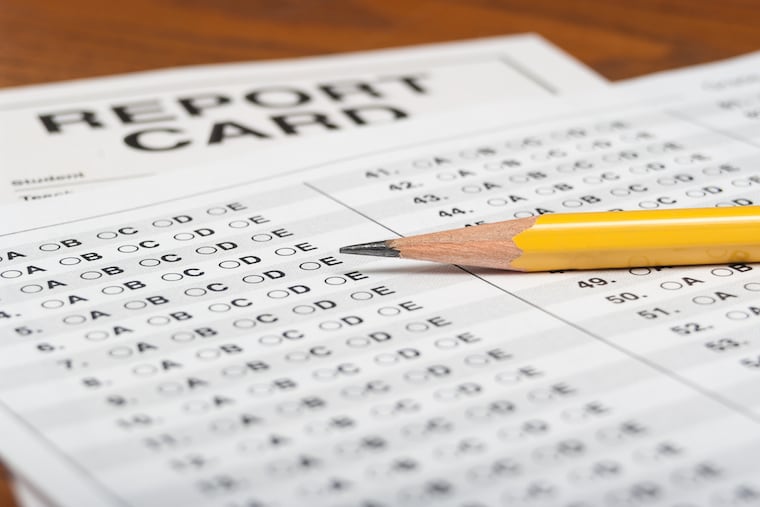Philly schools’ test scores mostly rising, but just 36% of children meet state English standards
Overall, 36% of city third through eighth graders met state standards in English language arts on the Pennsylvania System of School Assessment (PSSA) in the 2018-19 school year. That’s up from 35% the previous year. In math, 22% of city children scored proficient, up from 20% in 2017-18.

Students in the Philadelphia School District generally continue to make progress on state exams, but still lag state averages considerably.
Overall, 36% of city third through eighth graders met state standards in English language arts on the Pennsylvania System of School Assessment (PSSA) in the 2018-19 school year. That’s up from 35% the previous year.
In math, 22% of Philadelphia children scored proficient or advanced, up from 20% in 2017-18.
Forty percent of city students hit the mark on science exams, up from 35% the prior year.
Across the state, 61% of students scored proficient or advanced in English, 42% in math, and 68% in science, though under Gov. Tom Wolf, the state has deemphasized state exams, reducing the amount of time students spend taking the tests.
Philadelphia high school students’ Keystone Exams scores dropped. Twenty-eight percent of students were proficient or better in biology, down one point from 2017-18. Algebra scores dropped 2 percentage points to 20%, meeting state standards. And in literature, 41% of students met state standards.
To address issues at the high school level, district officials said they would implement a plan that will “enable alignment in funding, human resources, and materials to strengthen the academic experience of students in grades 6-12.”
Under superintendent William R. Hite Jr., the district has invested heavily in early literacy initiatives, with teacher training, libraries placed inside every kindergarten through third-grade classroom, and modernized some classrooms in those grades. A citywide Read by 4th campaign has augmented the effort.
Language arts scores in the early grades had been improving, but they fell slightly in 2018-19, to 33% from 37% of third graders meeting Pennsylvania standards.
District officials encouraged looking at long-term trends and at the fact that overall, fewer students are scoring at the lowest levels than they were five years ago.
“Results show what we’ve known for some time,” Hite said in a statement. “We are making steady progress in lower grade levels, while our high schools still require more supports. We are proud to see investments, particularly in early literacy, are paying off, but we know significant change takes time.”
Jenny Bogoni, executive director of the Read by 4th campaign, underscored that citywide change “rarely occurs in a straight line.”
“Moving a population-level metric is a monumental undertaking which requires programmatic and systematic solutions that are employed and adapted over a sustained period of time,” Bogoni said in a statement. “While this year’s third grade cohort didn’t do as well on the PSSA reading test as last year’s third graders, we remain optimistic about the future growth of elementary reading proficiency levels and confident in the work currently being implemented in the School District of Philadelphia.”